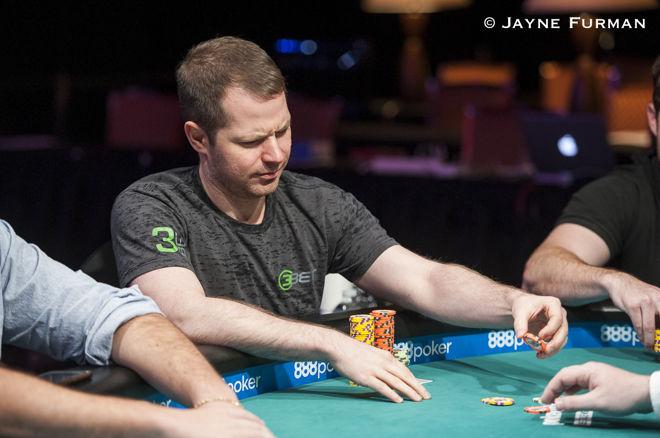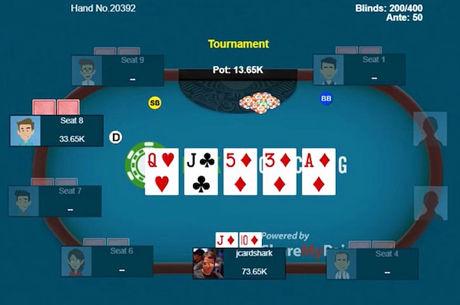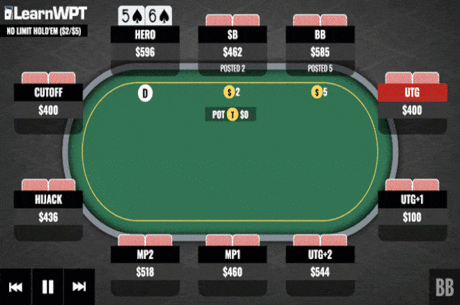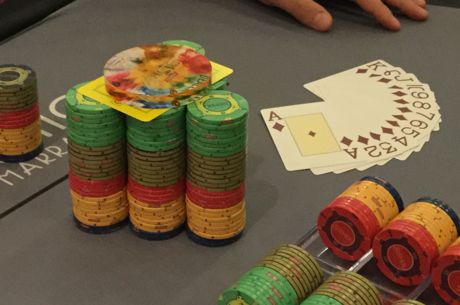Trying to Isolate a Short Stack Preflop With Pocket Sixes

Today's tournament hand presents an interesting situation in which before the flop I found myself focused on trying to isolate a short stack, then after the flop end up having to contend with a big stack.
The blinds were 400/800 with a 100 ante when a player with about 60,000 to start limped in from early position. It folded to me in the hijack seat where with about 92,000 I had been dealt 6?6?.
This is a spot where very often I'm just going to limp. If the players in the blinds are good I'll be more inclined to raise, since getting them to fold is a good result. There was also a very splashy, aggressive player on my left in the cutoff who I thought would be more likely to raise if I limped than to reraise if I raised, so in this instance I did raise to 3,800.
The splashy player (who had a little more than me to begin) called my raise, then a short-stacked player on the button reraised all in for 10,900. The blinds and original limper folded, and I had to decide whether to call the short stack's all-in or reraise myself to isolate.
As I discuss in the video below, reraising makes a lot more sense here than calling, as it folds out a lot of hands including some that are better than my sixes. It also (often) helps me avoid playing a deep-stacked, multi-way pot from out of position. So I raised to 21,000.
The cutoff player called. Now what? What kinds of hands do you think the cutoff player would have here? Against most reasonable players I would say ace-queen, ace-jack suited, king-queen suited, and tens, nines, and eights. That was the range I had in mind for him when the flop came K?K?5?.
With the pot up to 55,800, I had to decide whether to check or bet. This is a difficult spot against a splashy, aggressive player who is somewhat unpredictable. Take a look at what I decided to do and how things ultimately played out in this hand, and listen to the explanations of my thinking for my postflop decisions:
As I say in the video, I was essentially done with the hand after getting called on the flop, but then I got lucky to turn the effective nuts, and even luckier when my opponent made a blunder to push with his pocket nines.
Jonathan Little is a professional poker player and author with over $6,700,000 in live tournament earnings. He writes a weekly educational blog and hosts a podcast at JonathanLittlePoker.com. You can follow him on Twitter @JonathanLittle.









